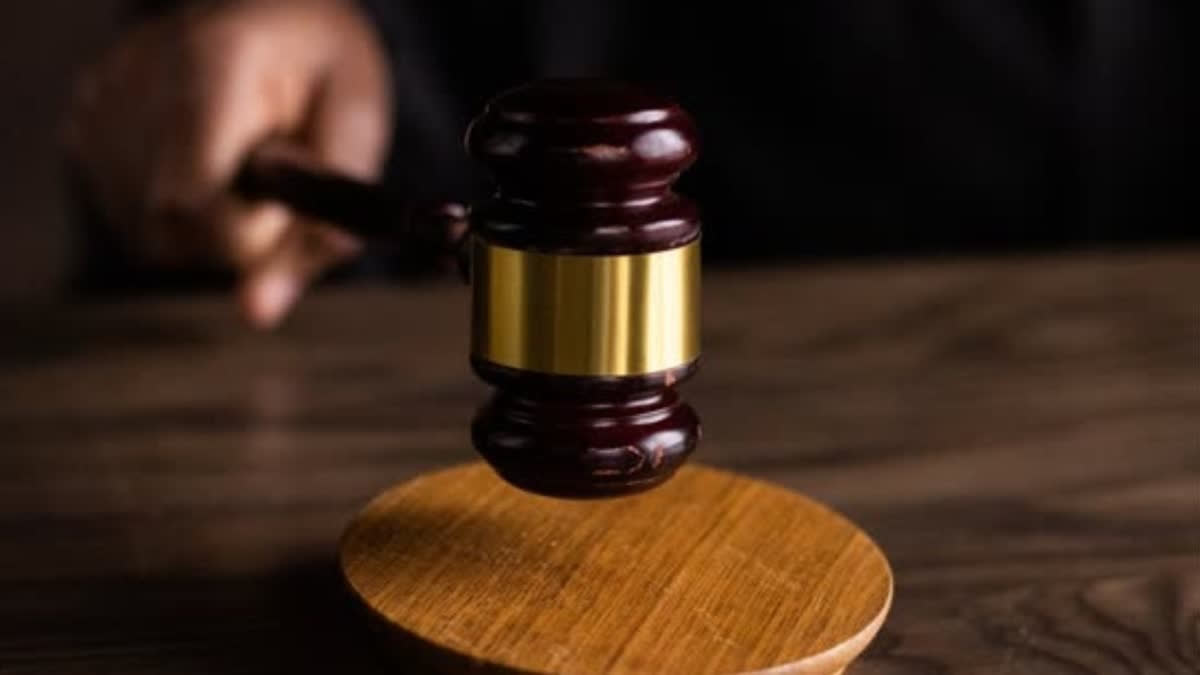New Delhi: Chief Justice of India (CJI) D Y Chandrachud on Monday said that expansion of the Supreme Court premises was a reflection of the collective commitment to the ideals of justice and the rule of law apart from building capacity for justice for the citizens.
Speaking during the ceremony for the expansion of the apex court, the CJI said it was not about adding space but expanding the capabilities to deliver justice in a timely and dignified manner.
"Today, we lay the cornerstone for the future of our justice system. A future that promises progress, accessibility and modernity. As the nation evolves, so do the challenges that our legal system face," he said.
Besides the CJI, Union Housing and Urban Affairs Minister Manohar Lal, Union Minister of State, Law and Justice (independent charge) Arjun Ram Meghwal, apex court judges, Justices Sanjiv Khanna and B R Gavai, also addressed the gathering.
"This event is not only a symbol of growth but also a testament to the evolving journey of justice in our country," the CJI further underlined. He said the expansion of the apex court was designed to accommodate the increasing caseload, new judicial benches and the requirements of judges, lawyers and citizens.
The CJI said while the original structure will remain intact, the subsequent additions to the complex will make way for the new state-of-the-art facilities.
Elaborating on the expansion, he said the new structure, spread over 86,500 square metres of built-up area, will be constructed in two phases and the first phase, being initiated today (October 14), will be completed within 29 months. "It will approximately cover 38,250 square metres and consist of two basements and a five-storeyed building," he said.
According to the CJI, upon completion of phase two, which will span an additional 48,250 square metres over three and four-storeyed blocks, the Supreme Court will have an additional 29 courtrooms, new judges chambers and dedicated spaces for lawyers and their own registry staff.
He said these additions reflect the commitment of the judiciary to remain dynamic, relevant and responsive to the increased complexity of cases that it faces today. "We are not just adding space. We are expanding our capabilities to deliver justice in a timely and dignified manner," he added. These buildings were stated to be environmentally conscious.
"It is pivotal that the apex structure of our justice system embodies the spirit of sustainability and eco-centrism in our structures. The expansion building of the Supreme Court will be fully accessible, incorporating features that are friendly to individuals with physical disabilities," he said.
The CJI further said, "We are cultivating a culture of upholding the law and enhancing the efficiency of the judiciary". These facilities, he said, will be equipped with state-of-the-art technology and infrastructure, allowing seamless case management, accessibility and incorporation of modern tools to support the work of the court.
"As we move forward with this expansion, we are not just adding brick and mortar to an existing structure. We are contributing to the lasting legacy of the Supreme Court of India," Justice Chandrachud said. He said this expansion, much like the Constitution itself, was designed to serve as a living, breathing entity, adapting to the needs of society while holding firm to its core values of justice, liberty and equality.
Justice Sanjiv Khanna termed it as a "happy and a momentous occasion" highlighting it as a manifestation of a collective vision for a stronger, more accessible and efficient justice system for citizens.
"As we stand here today, let us not only admire the beauty of the structure but also reflect on the immense responsibility it carries. It is in these chambers that decisions have been taken and will be taken that shape the destiny of this country," he said. He said it was about creating an ecosystem where justice can be delivered swiftly, fairly, without bias and at a high cost.



